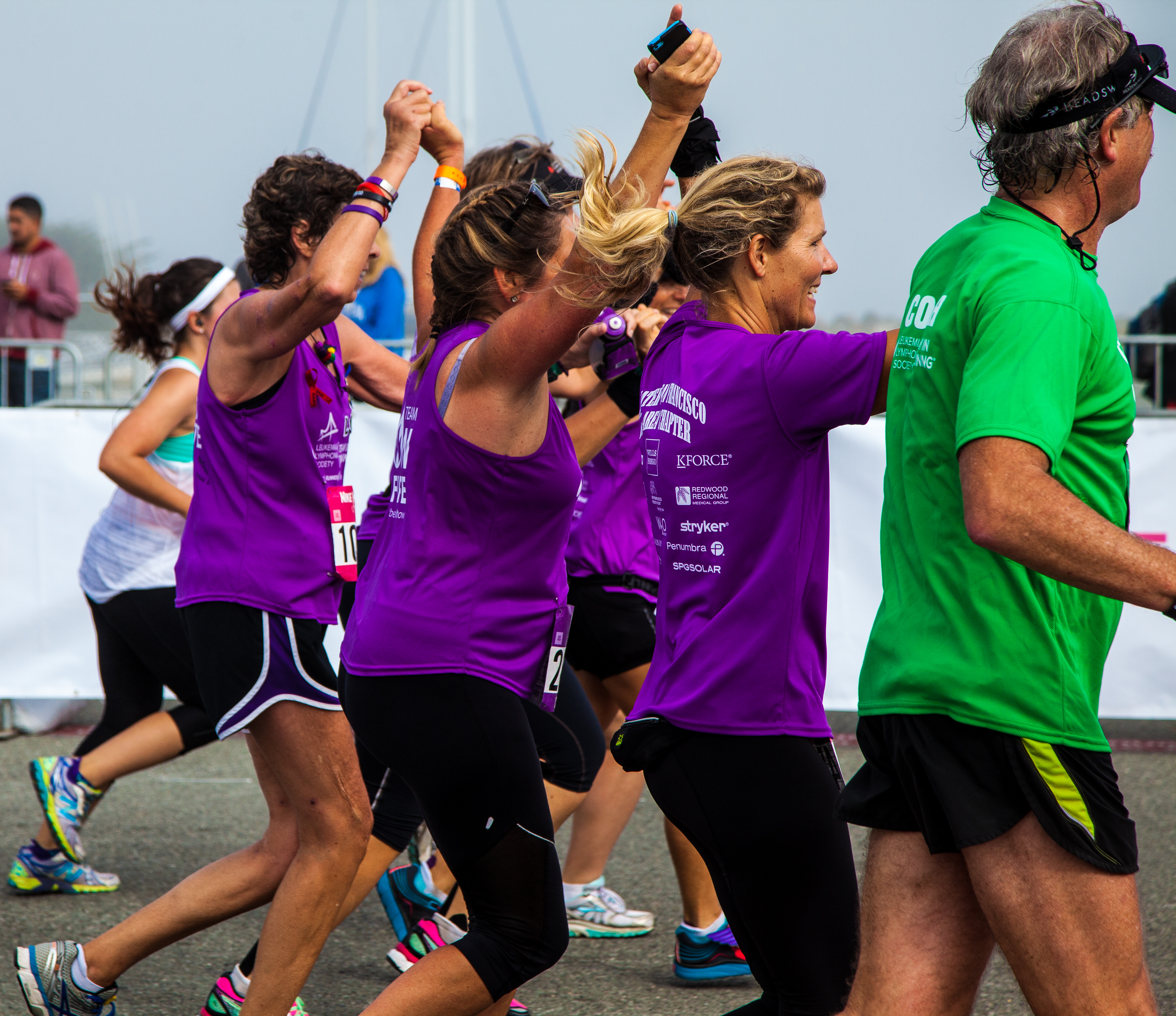This is my first time preparing for a run event – how do I find the right people to run with?
Everyone has a different starting point when it comes to training, and your Team In Training coach will connect you with fellow teammates at training sessions who are at the same stage as you and preparing for the same event. When you head out for runs, your coach will set a tempo that is optimal for your group and your teammates will progress at the same rate to prepare for your big event.
I have a time goal for my running event – how can I achieve it?
As an example, if you want to finish a full marathon in 5 hours or less– you would need to average an 11:27-minute mile. However, you should factor in hydration stops and bathroom breaks into the equation – as these will slow your pace on race day and add time to your run. So, to ensure that you cross the line in 5 hours or less, you should try to average closer to an 11-minute mile when training for your event.
I’m starting out as a runner – what do I need to get started?
Finding an ideal pair of shoes is the most critical piece of equipment you’ll need – and the best way to find the right pair is to go to a run shop for a professional fitting. Run specialists will put you on a treadmill and analyze your running style to find the correct shoe brand/size to maximize comfort and prevent injury. Outside of shoes, Body Glide helps to prevent chaffing and keeps you comfortable on longer runs – and run-specific shorts will help in wicking moisture away from you to keep things moving fluidly. For longer efforts, having a fuel belt allows you to run with extra water and energy snacks to stay fully fueled during training.
I have some hilly roads in my area – should I add hill training to my routine?
Running hills is a great way to test your fitness and add some new challenges to your training, but it’s best to take a measured approach and consult with your coach. Depending on your event weekend goals and experience with running, the addition of hill training can boost your overall strength and cardio performance – especially if your event is taking place on a flatter course. If you are new to running and are looking to steadily build your fitness, then it is best to keep running on flatter terrain to ensure that you do not overextend during training.
I’m ready for race day and want to make sure that I’m properly fueled – how much should I eat and drink?
When you’re out on course, you will be hydrating more frequently than eating – as you don’t want to load up with too much food and risk getting sick. You should eat your last meal about 3 hours before you line up – and while running, plan to eat a snack every 45-60 minutes. For hydration, you should start by hydrating regularly 2 to 3 days before your event – and while you’re running on race day, take drinks every 30 minutes from the hydration stations on course.

